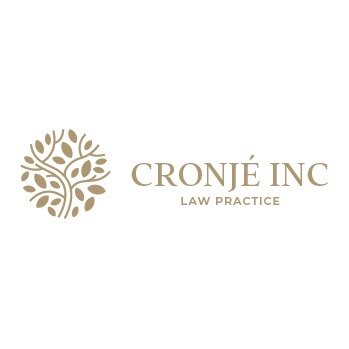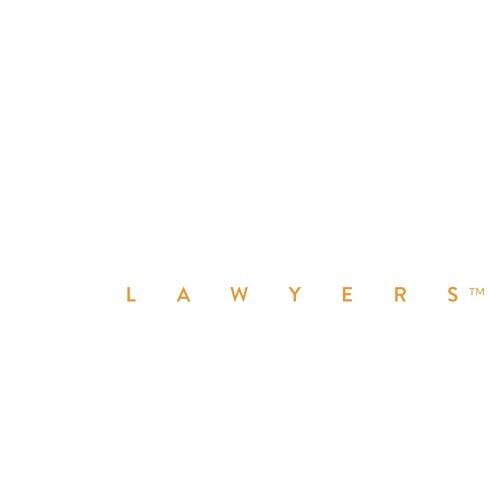Best Communications & Media Law Lawyers in Windhoek
Share your needs with us, get contacted by law firms.
Free. Takes 2 min.
List of the best lawyers in Windhoek, Namibia
About Communications & Media Law in Windhoek, Namibia
Communications & Media Law in Windhoek, Namibia, encompasses the legal frameworks governing telecommunications, broadcasting, media content, advertising, and the internet. This field of law is crucial in ensuring that communication technologies and media services are delivered responsibly, ethically, and in compliance with both local and international standards. In Windhoek, as in the rest of Namibia, media and communications law is influenced by the need to balance freedom of expression with privacy rights, ensuring a free yet accountable media landscape.
Why You May Need a Lawyer
People may require legal assistance in Communications & Media Law in various situations. For instance:
- Individuals or businesses facing defamation or privacy violation issues.
- Broadcasters and media outlets needing guidance on compliance with broadcasting regulations.
- Companies dealing with issues of intellectual property infringement over digital platforms.
- Journalists or media entities encountering censorship or restrictions.
- Advertisers and corporations navigating the complexities of advertising laws.
- Content creators seeking legal advice on content licensing and copyright issues.
Local Laws Overview
The legal landscape in Namibia for Communications & Media Law is governed by several key statutes and regulations that ensure the ethical management and distribution of information. The Communications Act regulates the telecommunication and broadcasting sectors. The Act aims to promote privacy, protect consumer rights, and ensure fair competition. The Newspaper and Imprint Registration Act governs the registration of newspapers and publications, while the Namibian Broadcasting Corporation Act outlines the structure and duties of public broadcasting services. Privacy and data protection matters are handled under the Protection of Information Act, which aims to safeguard citizens' data.
Frequently Asked Questions
What is the role of the Communications Regulatory Authority of Namibia (CRAN)?
CRAN is an independent body tasked with regulating telecommunications, broadcasting, and postal services in Namibia. It ensures service providers operate fairly and protect consumers' interests.
How can I protect my online content from being used without permission?
You can protect your online content by registering for copyright and including copyright notices. Additionally, seeking legal advice to draft terms of use for your content may offer further protection.
What steps can I take if I believe I've been defamed in the media?
If you believe you've been defamed, it is advisable to consult a legal professional to evaluate your case. They can assist you in pursuing defamation claims or seeking retractions and apologies.
Are there any restrictions on advertising in Namibia?
Yes, advertisements must comply with fair trading laws and must not be misleading or offensive. Specific regulations apply to advertising certain products, such as alcohol and tobacco.
How does the law protect my privacy when using telecommunications services?
The Protection of Information Act and other regulations protect your privacy by ensuring that service providers do not misuse your personal data and that confidentiality is upheld in communications.
Can internet service providers censor the content I access in Namibia?
Internet service providers must adhere to regulations, which restrict unwarranted censorship. However, they may block illegal content such as child pornography or comply with lawful interception requests.
How can I license my content for use by others?
To license your content, you should consult with a legal expert to draft a licensing agreement. Such agreements define how content can be utilized, ensuring rights are transferred under specific terms and conditions.
What rights do broadcasters have under Namibian law?
Broadcasters have the right to operate under licenses issued by CRAN, enabling them to deliver content to the public. They must comply with content regulations and ensure balanced and impartial reporting.
What should I do if my telecommunications provider fails to deliver promised services?
Initially, address the issue with your provider. If unsatisfied, you can submit a complaint to CRAN, which handles disputes between consumers and service providers.
How are cases of media censorship challenged in Namibia?
Cases of media censorship can be challenged through legal channels by filing a complaint or lawsuit that asserts infringement on freedom of expression. Legal counsel can guide the process based on specific circumstances.
Additional Resources
For further assistance or information, consider reaching out to:
- The Communications Regulatory Authority of Namibia (CRAN)
- Namibia Broadcasting Corporation (NBC)
- Namibia's Office of the Prime Minister - Department of Information and Communication Technology
- Namibian Legal Information Institute for access to laws and legal documents
Next Steps
If you believe you need legal assistance in Communications & Media Law, consider the following steps:
- Identify the specific legal issue you are facing related to media and communications.
- Consult with a lawyer specializing in Communications & Media Law to understand your rights and options.
- Gather all relevant documentation and evidence related to your case.
- Prepare questions and concerns to discuss during your legal consultation.
Taking these steps will help you better understand your legal position and the options available for resolving your issue efficiently.
Lawzana helps you find the best lawyers and law firms in Windhoek through a curated and pre-screened list of qualified legal professionals. Our platform offers rankings and detailed profiles of attorneys and law firms, allowing you to compare based on practice areas, including Communications & Media Law, experience, and client feedback.
Each profile includes a description of the firm's areas of practice, client reviews, team members and partners, year of establishment, spoken languages, office locations, contact information, social media presence, and any published articles or resources. Most firms on our platform speak English and are experienced in both local and international legal matters.
Get a quote from top-rated law firms in Windhoek, Namibia — quickly, securely, and without unnecessary hassle.
Disclaimer:
The information provided on this page is for general informational purposes only and does not constitute legal advice. While we strive to ensure the accuracy and relevance of the content, legal information may change over time, and interpretations of the law can vary. You should always consult with a qualified legal professional for advice specific to your situation.
We disclaim all liability for actions taken or not taken based on the content of this page. If you believe any information is incorrect or outdated, please contact us, and we will review and update it where appropriate.
















